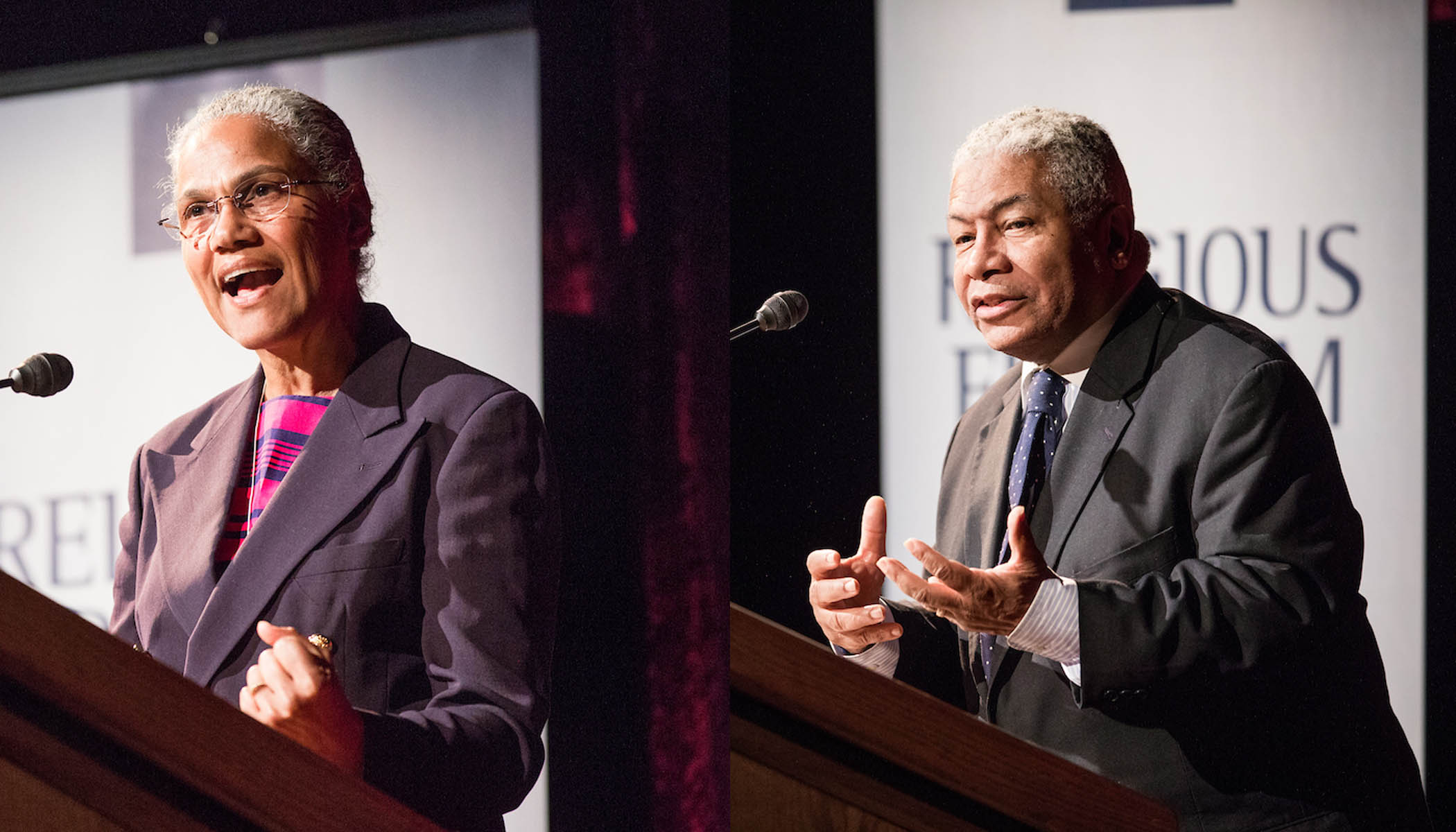Thursday General Session: Why Religious Freedom Matters to Me – Dr. Jacqueline Rivers and Rev. Dr. Eugene Rivers

By Austin Atkinson, 2018 ICLRS Student Fellow
The Thursday Morning general session was moderated by Jane Wise, Associate Director, International Center for Law and Religion Studies, J. Reuben Clark Law School, Brigham Young University. Speakers were Jacqueline C. Rivers, Executive Director and Senior Fellow for Social Science and Policy of the Seymour Institute for Black Church and Policy Studies and Lecturer, Harvard University, and Eugene F. Rivers, III, Reverend, Activist, and Political Analyst and Cofounder, the Boston TenPoint Coalition.
Dr. Jacqueline Rivers began the session with her remarks titled “Why Religious Freedom Matters to Me.” She labeled religious freedom as a “God-given right and responsibility,” and urged those in attendance to live consistently within their religious convictions. She expounded on the meaning of religious freedom, calling it service for the poor and citing examples of giving food to the hungry, housing to the elderly, and working with the police in Boston to turn around a huge crime wave. Dr. Rivers closed by speaking of the importance of sharing our religious beliefs, referring to Peter and John in Acts chapter 4, who were forbidden by the Sanhedrin to teach or preach: “as for us, we cannot help speaking about the things we have seen and heard.”
Reverend Eugene F. Rivers gave his rousing contribution to the session, and related the religious freedom of black people to God’s deliverance of the Israelites. As slaves, faith in God provided conceptual and cognitive things which supported them in the crucible of suffering, where families were torn apart, and the identities of black people were being destroyed. “Black people may not have money, but they have more religion than anyone,” said Reverend Rivers “which allows them to put God at the center of everything.” Rivers also spoke of when he was drafted into a gang at age twelve in Philadelphia. He eventually became converted to God, and went on to study philosophy at Harvard, where he sought to intellectually engage with the predominantly secular community. He and his wife moved from Harvard to the most violent neighborhood in Dorchester, Massachusetts motivated by faith to commit their lives to the poor. They continue to fight gang violence and foster good in their community.